Water in diesel fuel is a problem that can cause serious engine damage. But what are some tell-tale signs that there may be water or something else in your diesel fuel tank? Let's take a look at some warning signs to watch for.
Here are some warning signs that your diesel is contaminated:
- Your engine is running rough.
- You're noticing a loss of power.
- Your fuel mileage is suffering.
- You're seeing water or moisture in the fuel filter housing.
- White exhaust smoke or "exhaust fog" comes from the tailpipe.
- Delay or lag in acceleration.
- Erratic idling.
- Hard starts.
- Check engine light.
It's essential to keep an eye out for these signs so you can take action to fix the problem before it causes severe damage to your engine. In this article, we will discuss these warning signs in detail and what causes water to get into your diesel fuel in the first place.
![Mechanic checking the engine for problems, Contaminated Diesel Fuel Symptoms To Look Out For [Inc. Water]](https://vehq.com/wp-content/uploads/2022/06/Contaminated-Diesel-Fuel-Symptoms-To-Look-Out-For-Inc.-Water.png)
Tell-Tale Signs That Diesel Fuel Is Contaminated
Water can enter your fuel tank in several ways. One way is thcondensation. This can happen when warm air meets a cooler surface, such as the inside of your fuel tank.
As the temperature changes, water droplets can form and eventually make their way into your fuel.
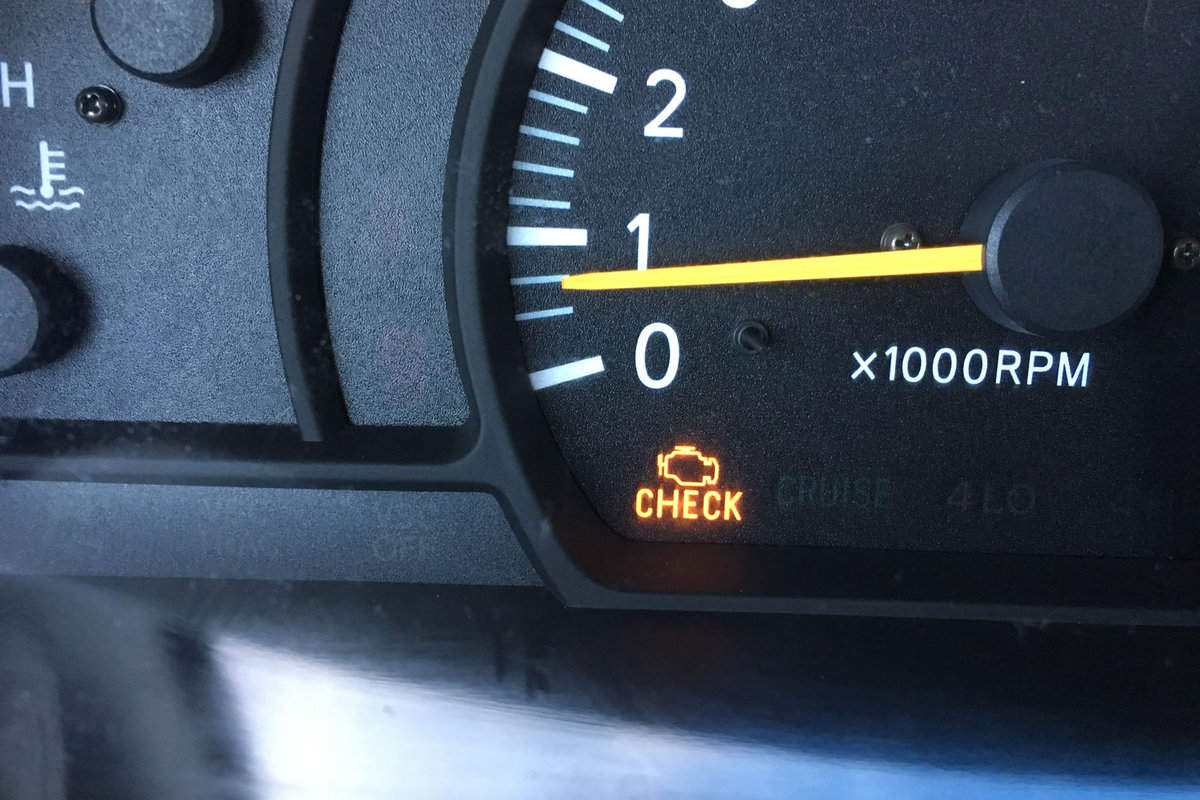
Another way water can enter your tank is if you fill up at an outdoor pump that isn't well-sealed. This can allow rain or snow to enter the pump and contaminate the fuel.
Once the contaminated fuel is in your tank, it can cause all sorts of problems for your engine.
Water in diesel fuel can cause many problems for your engine. The most serious problem is corrosion. Water can cause deterioration of the fuel injectors, which can lead to premature failure.
In addition, water can cause rust and other damage to the engine itself.
Another problem caused by water in diesel fuel is clogged fuel filters. When moisture mixes with diesel fuel, it can cause the formation of sludge and other contaminants that can clog up your fuel filter.
This can lead to a loss of power and decreased fuel economy. In severe cases, it can even cause your engine to stall.
It is possible when the engine starts to have problems, a check engine light will come on. If this is the case, it's essential to take your vehicle to a mechanic so they can diagnose and fix the problem.
Lastly, if you notice your engine is idling erratically or losing power, and the exhaust is coming out as white smoke or "fog," these are all signs that you have water in your diesel fuel.
How Do You Get Water Out Of Diesel?
If you think you have water in your diesel fuel, you should first tow the vehicle to a mechanic or service station so they can drain the water out of the tank.
They will also need to inspect the fuel system for damage and replace any damaged parts.
Instead of draining, they may pump the water out with a special pump designed for this purpose. However, if it isn't caught early, water will settle at the bottom of the tank and can clog up the fuel line.
If you notice minor symptoms, you can try a fuel additive designed to remove water from the fuel system. These additives contain chemicals that attract water and then bind to it so the engine can burn it off.
However, this doesn't always work, and it's not a permanent solution. If symptoms persist, you'll need to have the water drained from the tank.
Preventing Water Contamination In Diesel Fuel
The best way to deal with water in your diesel fuel is to prevent it from happening in the first place.
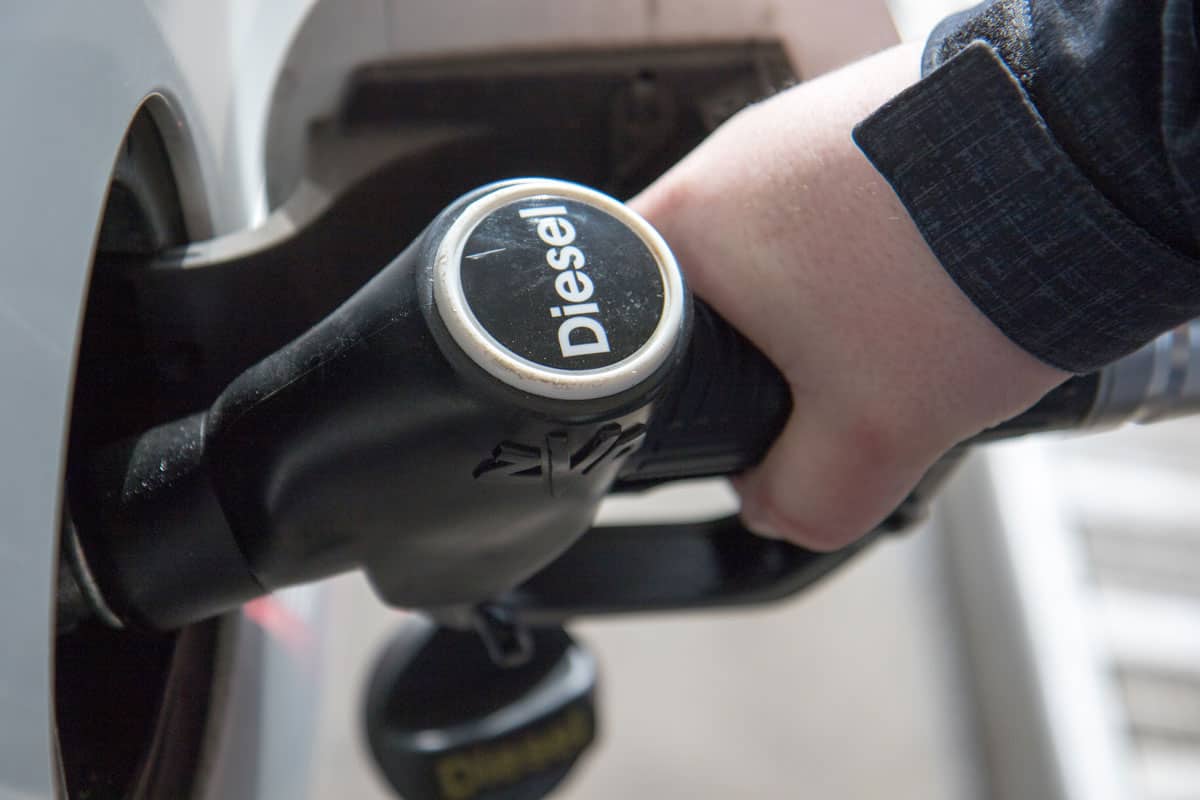
Here are some tips to help you keep water out of your fuel tank:
Use High-Quality Fuel
One of the best ways to prevent water contamination is to use high-quality fuel. This fuel is less likely to condense and is less likely to be contaminated by water at the pump.
You want to go to places with certified Top Tier diesel, such as Chevron, Costco, Shell, Exxon/Mobil, and Conoco. These companies have higher standards for their fuel, and it will help your engine run better and last longer.
Use Fuel Additives In The Winter
If you live in an area that gets cold in the winter, it's good to use fuel additives. These additives can help prevent water from condensing in your tank and also help keep your fuel system clean.
If you live in climates where temperatures are below 20 degrees Fahrenheit, you should use an additive every time you fill up. You can use an additive every 2-3 months for fill-ups for milder climates.
Keep Your Car In The Garage
If you have the option, it's always best to store your vehicle in a garage. This will help protect your fuel system from the elements and also help keep your engine and fuel system warm.
This is especially true in regions where harsh winters are typical. Keeping your vehicle in a garage will help prevent water contamination and help extend your engine's life.
Check Your Tank Regularly
If you suspect there might be water in your tank, it's important to check it regularly. You can do this by draining a small amount of fuel into a clean container and then checking it for water.
The water will settle to the bottom of the container, and you'll be able to see it.
Don't Let Your Tank Get Empty
If you let your tank get too low, there's a greater chance that water will get into it. This is because the air space at the top of the tank provides a place for water to condense.
If you can, try to keep your tank at least half full. This will help prevent water from getting into the tank and also help you avoid running out of fuel.
It is recommended to keep your fuel tank as full as possible to help prevent water contamination in the winter months.
Secure Your Car's Fuel Cap
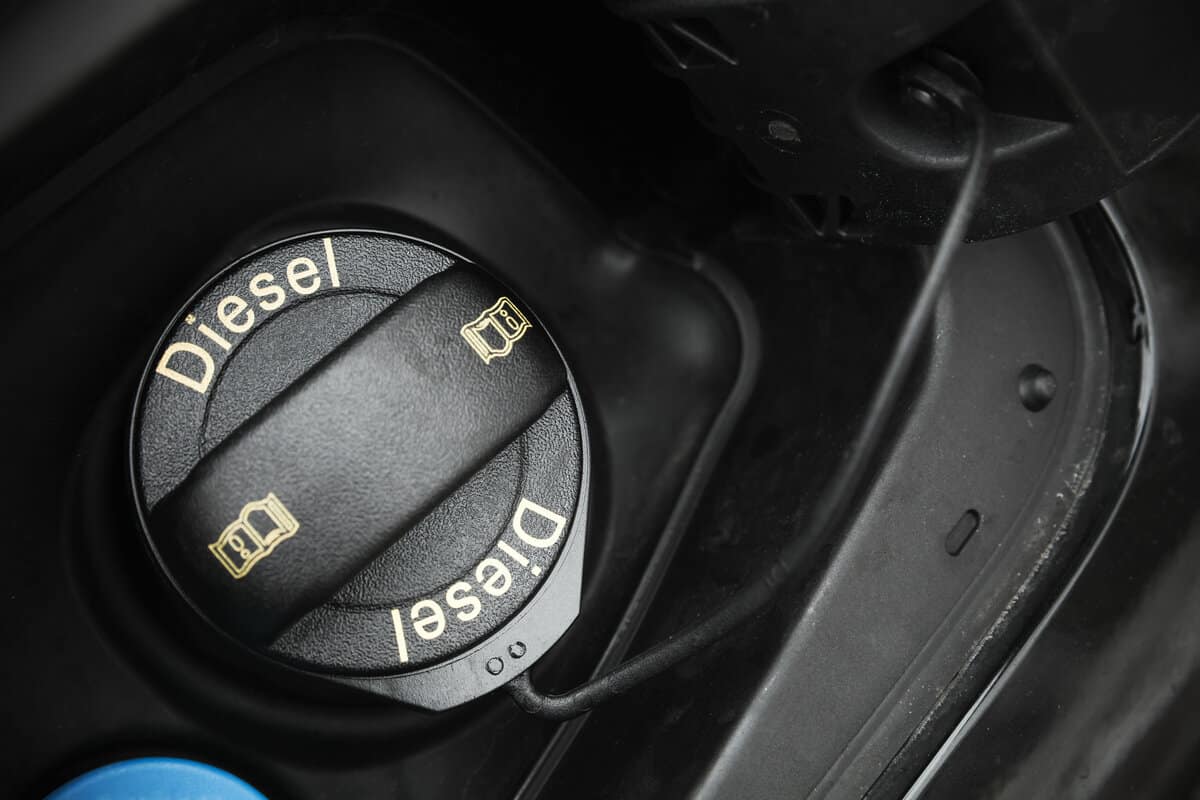
Another way water can get into your tank is if your fuel cap isn't tight. Make sure the O-ring on the cap is in good condition and that the cap is screwed on tightly.
You should also check the cap regularly to ensure it's still tight.
How Much Does It Cost To Remove Water From Diesel?
The cost of removing water from a diesel tank will vary depending on the severity of the problem and the type of tank.
However, the cost can be in the range of $500 just for the removal process and does not include the cost of the new parts needed.
However, if the water gets into the fuel lines, then repairs could be $2,000.
If you have a warranty, check if it covers water contamination. Many manufacturers will cover the cost of repairs if the problem is due to a defect in the fuel system.
Can Water Get Into Motor Oil?
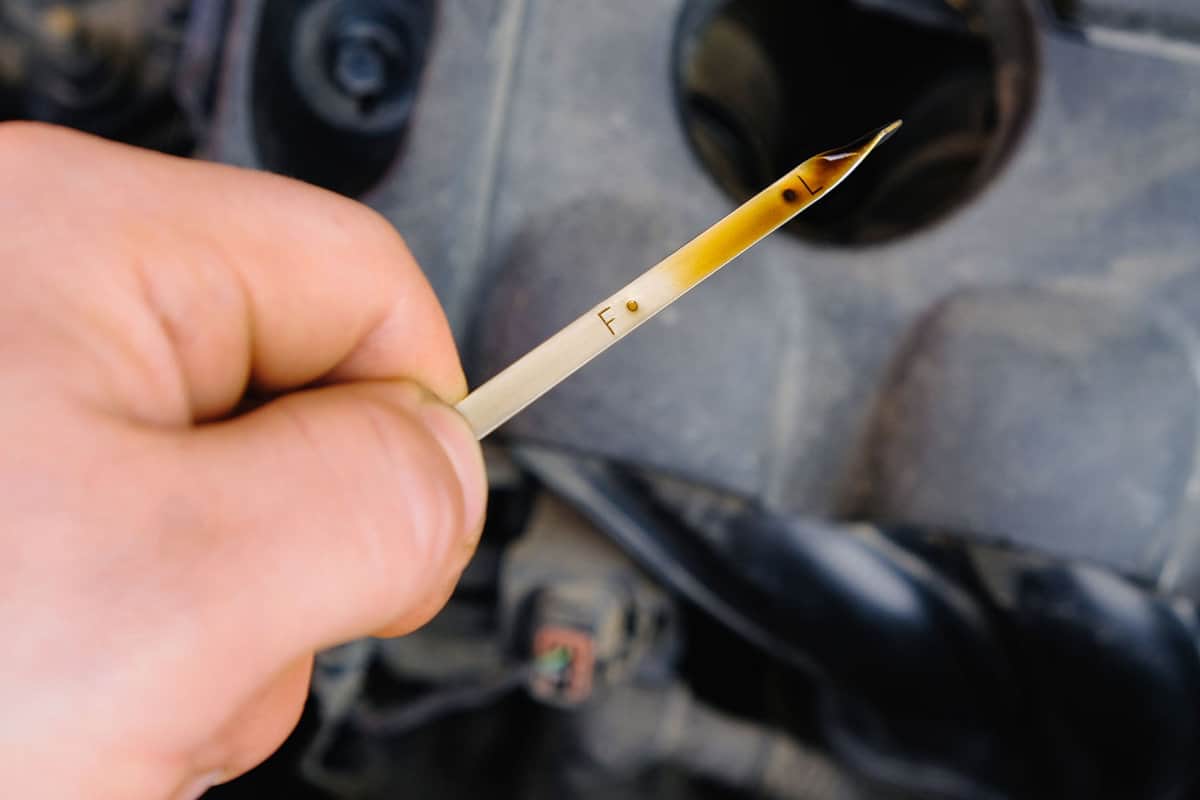
In addition to water getting into the fuel, it is also possible for water to get into the motor oil. This can happen if the vehicle is driven in wet conditions or sits for a long period without being used.
Another way this can happen is from a coolant leak due to a bad gasket or hose.
The water will mix with the oil and can cause damage to the engine. You may notice a brownish residue on the dipstick if water has gotten into the oil.
If you do, you can either drain the oil and replace it or have the oil changed by a professional. If you take it to a certified mechanic, they can double-check for any other leaks in the system.
Final Thoughts
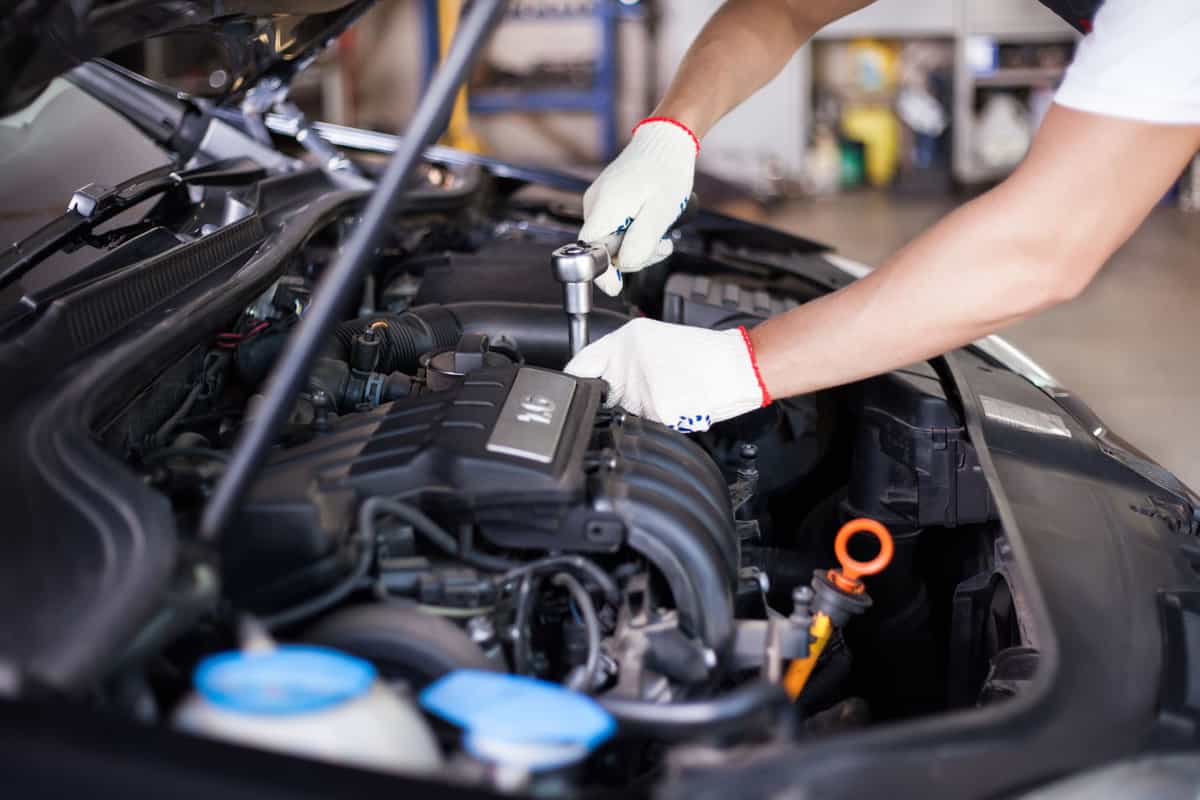
Water and fuel don't mix, but unfortunately, water can get into your fuel tank and contaminate your fuel. This can happen in several ways, but the most common is condensation.
If you notice any of the symptoms mentioned in this article, it's essential to have your vehicle checked by a professional as soon as possible.
Made it to the end? Check out these helpful related posts!
Can Diesel Go Bad? [And How Long Does It Last?]
